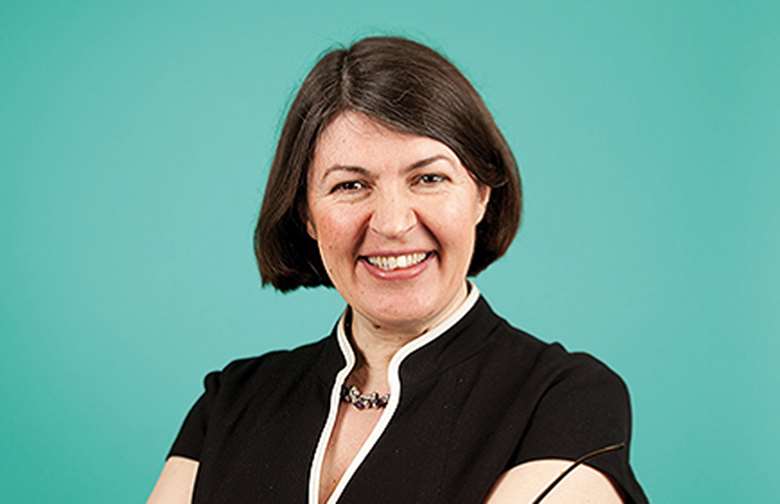Ofsted has a big conversation with the London OBC
June O'Sullivan
Friday, October 1, 2021
One of the few benefits of Covid-19 was that we learned that we could manage big meetings using technology and there was less reason for people to complain about not being able to attend due to timing, venue or cost.

Therefore, we have continued to host the Ofsted Big Conversation (#OBC) on Zoom. No excuse for those reluctant to establish their local OBC! Only a very foolish or arrogant sector would reject the opportunity to work closely with their regulator and have a line to participate in change and improvement even if it takes a long time and can feel like pulling teeth.
At this meeting we had two HMI guests, Penny Fisher who works in the Regional Team covering London and Wendy Ratcliff, who is in the Policy Team.
Wendy opened the meeting with a very comprehensive set of slides (attached). Her message was all about inspections; she pointed us to the new revised Ofsted information on EIF inspections that was published on the 22nd of July 2021.
She reaffirmed the EYFS statutory framework principles and reminded us that:
-
Language features in all areas of learning
-
There is a stronger focus is placed on children’s early communication
-
More equal chances are promoted for all children
-
Excessive workload is tackled
-
More emphasis is placed on children’s health
-
The focus of the EIF takes all of these things into account. She confirmed that inspection is about the inspector finding out what it feels to be a child in the setting.
-
This is supported by the principles of:
-
Unique child
-
Positive relationships
-
Enabling environment and teaching and support
-
Importance of learning and development
Wendy also clarified that while DfE has a new refreshed Development Matters, this is not statutory, and inspectors will not inspect against this.
However, she warned that we should avoid using this document or similar ones as a tick list especially because it can narrow the curriculum and have the greatest negative effect on the most disadvantaged children. The inspector wants to see what you intend the children to learn and develop especially language and communication and how you have decided to implement the curriculum especially as Ofsted believes that teaching should not be seen as a top-down model.
We were inspected recently, and the Learning Walk was very significant in how the manager explained our pedagogical approach and how decisions were made about the experiences the children received.
This was reassuring because some settings with specific pedagogies e.g. Montessori are worried about how Ofsted may interpret their approach. However, what is needed is that the manager and the team can confidently explain and demonstrate how they convert the approach into learning and teaching for the children.
Ofsted recognised the importance of us being ambitious for our children, extending and deepening their vocabulary and language skills to support their cognitive development. This is linked to cultural capital and giving children the experiences needed to strengthen their learning with particular emphasis on those with SEND or other disadvantages.
Effective assessment can reduce the chance of a child being left behind, but it need not be a mountain of paperwork nor entail prolonged breaks from interactions. The change to the inspections addressed the problem of excessive documentation by giving more freedom to demonstrate the child’s progress. This means, staff need to know their children and notice how they are being, belonging and becoming and talk about them with energy, enthusiasm and knowledge. Assessments must be meaningful and show children’s success in areas of learning.
Penny Fisher gave an update on London. She told us about the number of inspections completed since returning to EIF from May 2021. Pre-empting the questions about length of time between inspections, she noted that Ofsted had received permission from the Government to conduct inspections within a six-year window. I know it's long!
She gave a general view from inspections so far which reflect some of the changes to practise from Covid-19 such as staggering drop offs and pickups, increase in outdoor play, more hygiene incorporated into the daily routine especially hand washing and new ways to communicate with parents including virtual tours and using social media.
However, some children appear more anxious and some of their language is delayed so providers have adjusted their curriculum to better address those issues.
Where inspections are outstanding, it’s linked to skilful implementation of language at every level of the day through conversations, enriched storytelling and an emphasis on helping children build friendships and confidence. Where inspections haven’t gone well the findings suggest it was due to lack of staff training supporting skills, inadequate risk assessments and issues of safeguarding. As yet there was no data on the impact of the recruitment crisis or the post Covid-19 exhaustion.
Ofsted will report on this next month with facts and figures, so look out for that!
June O’Sullivan is chief executive of the London Early Years Foundation (LEYF). This blog was first published on the LEYF website.




